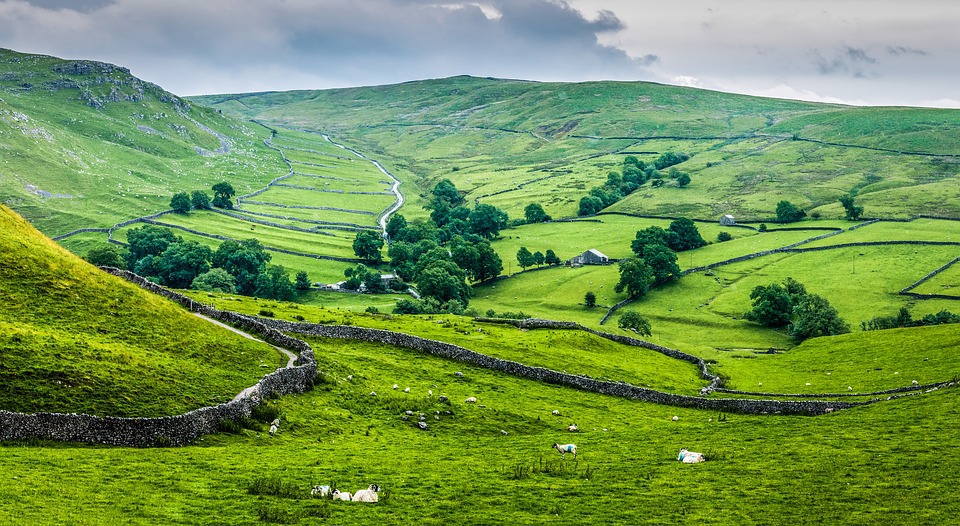 Visiting London to learn English is more than an educational endeavour. Stepping foot into the bustling streets of London is akin to embarking on a captivating journey through the heart of English language and culture. From the historic landmarks to the vibrant neighborhoods, every corner of the city provides insights into the language and cultural landscape that defines modern-day Britain. Join us as we embark on a virtual tour of London, uncovering the ways in which this iconic city can enrich your understanding of English language and culture. Continue reading
Visiting London to learn English is more than an educational endeavour. Stepping foot into the bustling streets of London is akin to embarking on a captivating journey through the heart of English language and culture. From the historic landmarks to the vibrant neighborhoods, every corner of the city provides insights into the language and cultural landscape that defines modern-day Britain. Join us as we embark on a virtual tour of London, uncovering the ways in which this iconic city can enrich your understanding of English language and culture. Continue reading
Tag Archives: History
History of Women’s Football EFL Lesson
 The Women’s World Cup is currently in full swing, so we’re riding on the waves of footy euphoria and using the tournament as a springboard to explore the fascinating and turbulent history of women’s football. This is a great topic for the EFL classroom as a conversation lesson that can be adapted for all language levels, concerning issues of sport, politics and sociology. It also includes lots of vocabulary that will be useful for language learners across many areas.
The Women’s World Cup is currently in full swing, so we’re riding on the waves of footy euphoria and using the tournament as a springboard to explore the fascinating and turbulent history of women’s football. This is a great topic for the EFL classroom as a conversation lesson that can be adapted for all language levels, concerning issues of sport, politics and sociology. It also includes lots of vocabulary that will be useful for language learners across many areas.
How did women’s football go from being hugely popular in the 1920s to being almost unknown in the UK for fifty years? Read on to find out how and why women’s soccer was side-lined – and how it is now experiencing a resurgence to become the fastest growing sport in the world. Continue reading
Yorkshire Dialect Dictionary Uncovers 4,000 Regional Words
 The Yorkshire Historical Dictionary has recently been published online by the University of York. The dictionary collects together more than 4,000 Yorkshire terms and is the life-long work of historian Dr George Redmonds, who died aged 82 in August 2018. The Yorkshire dialect dictionary is a fascinating insight into not only the changing vocabulary but also the culture, history and people of the region. Continue reading
The Yorkshire Historical Dictionary has recently been published online by the University of York. The dictionary collects together more than 4,000 Yorkshire terms and is the life-long work of historian Dr George Redmonds, who died aged 82 in August 2018. The Yorkshire dialect dictionary is a fascinating insight into not only the changing vocabulary but also the culture, history and people of the region. Continue reading
Origins of the Word ‘Spelunking’
 The word ‘spelunking’ has been in the news a lot recently due to the extraordinary rescue of the Thai boys and their football coach who were trapped in a flooded cave. While the boys and their coach are now safely back home, the interesting word ‘spelunking’ has stayed in the minds of many language learners, so we have decided to bring this strange word under the language microscope for our latest blog post. Grab your headlamp and read on to explore the meanings and differences between the words spelunking, potholing, caving and speleology. Continue reading
The word ‘spelunking’ has been in the news a lot recently due to the extraordinary rescue of the Thai boys and their football coach who were trapped in a flooded cave. While the boys and their coach are now safely back home, the interesting word ‘spelunking’ has stayed in the minds of many language learners, so we have decided to bring this strange word under the language microscope for our latest blog post. Grab your headlamp and read on to explore the meanings and differences between the words spelunking, potholing, caving and speleology. Continue reading
Celebrating International Women’s Day

1. We Can Do It poster is from a series based on a World War II Poster, We Can Do It! aka Rosie the Riveter –Source image
International Women’s Day falls on 8th March every year and coincides with Women’s History Month. This special day is a global celebration of the social, economic, cultural and political achievements of women. International Women’s Day also highlights areas where action is still needed to achieve gender parity around the world.
An International Women’s Day EFL lesson can engage with these issues in a highly relevant way. The concept of access to education as a basic human right is reflected in language learning, as a great way to empower women and girls. Continue reading
UEFA Women’s Euro 2017 Kicks Off!
![1. UEFA Women's Euro 2017 - Semifinal - Denmark vs Austria, image by Ailura, CC BY-SA 3.0 AT [CC BY-SA 3.0 at (https://creativecommons.org/licenses/by-sa/3.0/at/deed.en)], from Wikimedia Commons Women Euro 2017 - Denmark vs Austria](http://www.myenglishlanguage.com/wp-content/uploads/2017/07/UEFA-Womens-Euro-2017-Semifinal-Denmark-vs-Austria.jpg) The UEFA Women’s Euro 2017 is currently playing in the Netherlands, giving us the perfect excuse to move on from tennis after the excitement of Wimbledon and into some fresh football vocabulary! The Euros group stage began on 16th July and the final will take place on 16th August. Join us for a soccer-themed language and culture lesson as we dive into the latest footy action with the Women’s Euros 2017! Continue reading
The UEFA Women’s Euro 2017 is currently playing in the Netherlands, giving us the perfect excuse to move on from tennis after the excitement of Wimbledon and into some fresh football vocabulary! The Euros group stage began on 16th July and the final will take place on 16th August. Join us for a soccer-themed language and culture lesson as we dive into the latest footy action with the Women’s Euros 2017! Continue reading
Will Brexit Stop the Dominance of English?
 The English language has spread around the world so dramatically since the Second World War that there are now more non-native English speakers than native English speakers. The number of English speakers has risen from 400 million to 1.5 billion over the past 70 years. English dominates many conversations between speakers of other languages, simply because it is the only language many people have in common. But will the dominance of English fade after Brexit? Continue reading
The English language has spread around the world so dramatically since the Second World War that there are now more non-native English speakers than native English speakers. The number of English speakers has risen from 400 million to 1.5 billion over the past 70 years. English dominates many conversations between speakers of other languages, simply because it is the only language many people have in common. But will the dominance of English fade after Brexit? Continue reading
